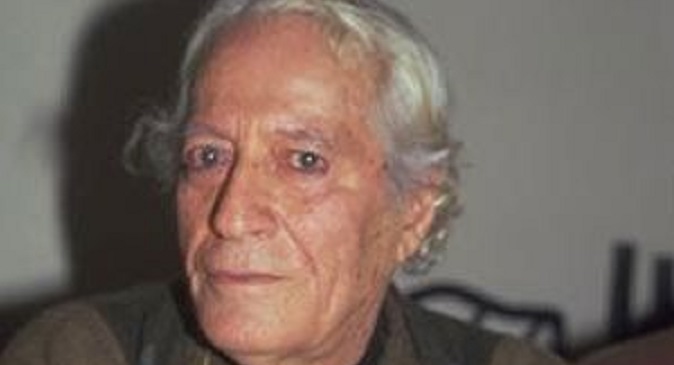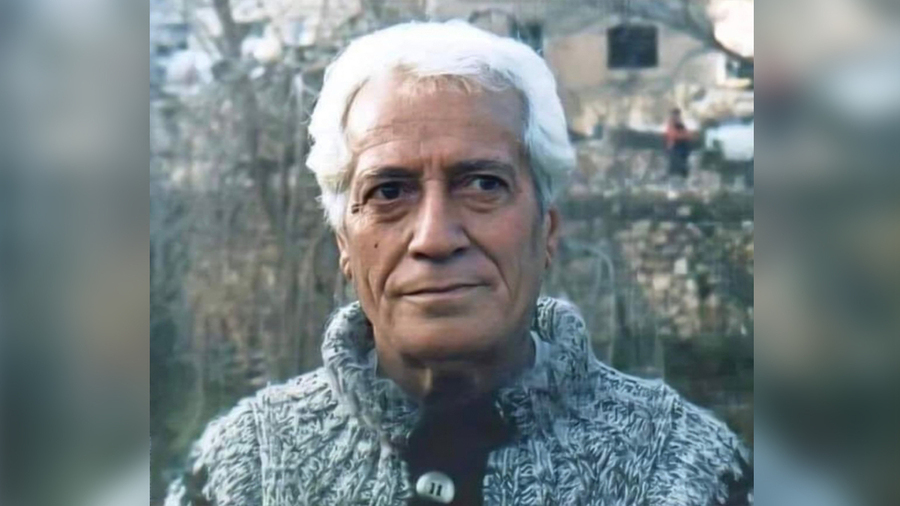Kurdshop- Musa Anter, Kurdish writer and journalist, was born in 1920 in the village of Zving in the Nsebin district of Merdin city in North Kurdistan.
Musa Anter, also known as Apè Musa, lost his father at an early age and was raised by his mother, Fasla Anter. In the 1930s and 1940s, Daya Fasla was the first female governor of North part of Kurdistan.
Apè Musa completed primary school in Merdin and secondary and high school in Aden. He then went to Istanbul, Turkey, to study philosophy, where he graduated from the Faculty of Law of Istanbul University and met several Kurdish students.
In 1944, he married Aisha, the daughter of Abdulrahim Rahmi Hakari. They had two sons, Antar and Dijla, and a daughter, Rawshan.
Musa Anter, who dropped out of philosophy after Fayq Bucak’s suggestion, enrolled in the Law Department. At that time, Kurdish students and intellectuals were joining the movement for the Kurdish national issue.
Apè Musa established the Dijla Students House to gather Kurdish youth around him and to support Kurdish students financially, spiritually, and politically.
A year later, in 1942, he and his friends founded the magazine Hevi, and at their suggestion, the Students' Association was also founded.
In 1948, Musa Antar founded the Furat House and began publishing the newspaper Source of the Dijla. A few years later, he began publishing another newspaper in Amed, Ileri Yurd, or "A Developed Country". He was also imprisoned for his Kurdish writings and poems.
In 1959, he was arrested again on charges of case 49 and imprisoned with 49 other friends for six months.
In the early 1960s, he officially entered politics by joining the Left Party of Turkish.
He was arrested again in 1971 and after his release from prison, he returned to his village in 1976 and lived there until 1989.
After 1989, Apè Musa returned to Istanbul and wrote for many magazines and newspapers. At the same time, he joined the HAP and returned to politics.

After 1971, Musa Anter returned to Kurdistan and was arrested by state forces in Amed and sentenced to four years in prison.
After his release from prison in 1976, Kurdish intellectual Musa Anter returned to the village of Zving and lived there.
In 1989, he returned to Istanbul and his writings and experiences were published in many magazines and newspapers. Apè Musa, whose writings were published in many newspapers and magazines such as Welat, Ulke, Ozgur Gundem, and Ozgur Ulke, was also read with interest by readers.
On September 20, 1992, Apè Musa was martyred by a group of fascists in a street in Amed.
On the cover of his book, Hatralarm or "My Memories", Musa Anter says: "I have been a living and sworn witness to Turkey's problems for 55 years. Am I only the witness? No! I am convicted, accused, and sued."
It is worth mentioning that Apè Musa has paid great attention to the freedom of Kurdish women and their role in the work and struggle of the Kurdistan liberation movement, and played a very important role in the Kurdish journalism movement.
Journalism Awards:
The Musa Anter Journalism and Press Martyrs Prize has been awarded in Turkey since 1993.
Musa Anter and Press Martyrs Journalism Award, first in 1993 by Ozgur Gundem, then in 1994 by Ozgur Ulke, in 1995 by Yeni Politika, in 1996 by Democracy, in 1997 and 1998 by Ulkede Gundem, in 2000 by Yani Gundem and in 2001 awarded by Yedinci Gundem.
Musa Anter's works:
Black Ulcer – 1959
Kimil – 1962
Kurdish Dictionary – Istanbul, 1967
My Memoirs, Volume 1 – Istanbul, 1991
My Memoirs, Volume 2 – Istanbul, 1992
My Poplar – Istanbul, Avesta Publishing House









